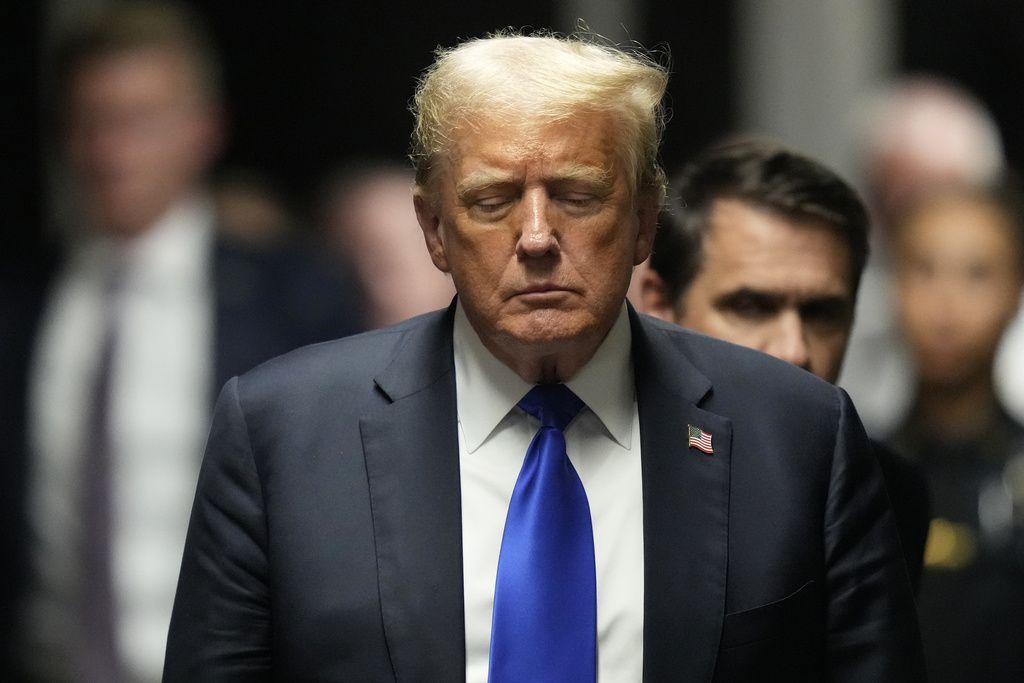

Former President Donald Trump could find himself facing more restrictions on his life than he has ever had to handle.
The historic conviction of 34 felony counts on Thursday was met with reactions varying from despair from some in the Republican Party to glee from Democrats.
Trump reacted angrily, declaring, “The real verdict is going to be Nov. 5.”
He could have reason to be angry. Trump’s conviction labels him as a felon unless he can get the ruling overturned in the appeals process.
That enables Florida to ban Trump from doing a variety of activities that citizens who aren’t felons could take for granted. Here are the ones we know.
Right to vote
Trump may or may not be allowed to vote for himself this November, as Florida law “deprives convicted felons of certain civil rights,” including the right to vote. It is common practice for political candidates to be seen at polling stations voting for themselves.
Trump may apply to restore his right to vote after the “final expiration of an offender’s supervision.” The Florida Parole Commission would review his application.
A 2018 ballot amendment allows felons to vote once they finish their sentences, though Gov. Ron DeSantis (R-FL) and other Florida Republicans added a stipulation that they must also pay their fines related to crimes.
One complicating factor for Trump is that he was convicted of his crimes in New York.
“A felony conviction in another state makes a person ineligible to vote in Florida only if the conviction would make the person ineligible to vote in the state where the person was convicted,” according to the Florida Division of Elections.
In New York, felons are only banned from voting while they are incarcerated, and Trump is unlikely to be, possibly allowing him to vote in Florida still.
However, Ben Stechschulte told the Washington Examiner the question of whether Trump will be allowed to vote might not be as cut and dry as the Florida Division of Elections suggests.
“You can’t vote in Florida unless you’ve received a pardon or you’ve gotten some form of restoration of your rights, generally speaking,” Stechschulte said. “It doesn’t change if your felony conviction is in another state.”
Right to own a firearm
Generally, felons cannot own a firearm in Florida. It isn’t known if Trump owns a gun, but he once expressed interest in buying one at a campaign stop in South Carolina. Stechschulte confirmed this fact.
“Once you’re a convicted felon, at least for purposes of a resident of the state of Florida, you cannot vote, and you cannot own a firearm,” he said.
Interstate and international travel
Some felons in Florida are not allowed to leave their district without permission from their probation officer, a restriction that could complicate Trump’s ability to campaign and govern.
In the Middle District of Florida, felons are required to get written permission from their probation officer, and any travel outside the United States needs to be requested a month before they plan to leave.
Can he still hold public office?
Thursday’s felony conviction does not affect Trump’s ability to hold office. If Trump were convicted in a federal court — his hush money case was held in the New York Supreme Court, a state court — he wouldn’t be able to hold public office.
He has two federal cases pending in Georgia and Florida, but those aren’t expected to be decided before the election. However, if they are decided after the election, he might have to step down if convicted.
CLICK HERE TO READ MORE FROM THE WASHINGTON EXAMINER
The Constitution does not stipulate that a federal felony prohibits a candidate from running for president, so that could make a solid argument for Trump’s legal team if that scenario occurred.
Trump already said he is going to appeal the jury’s decision. His sentencing is set for July 11.




